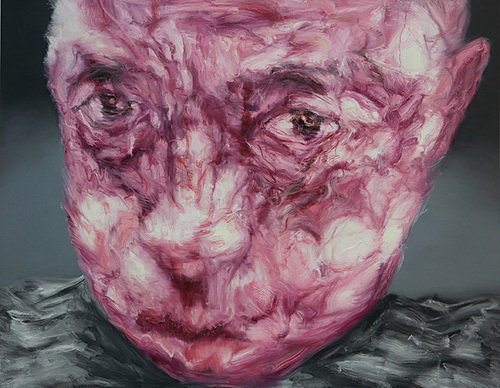Zhao Nengzhi
dal 7/6/2008 al 27/6/2008
Segnalato da
7/6/2008
Zhao Nengzhi
ChinaSquare, New York
Confessional Figuration. Zhao's red faces, painted in sizes large enough to evoke landscape, do not rely on external references to make their point; instead, hardship has been internalized, so that the portraits communicate mostly psychological distress.

Essay by Jonathan Goodman
ChinaSquare Gallery is pleased to present Zhao Nengzhi: Confessional
Figuration, on view from June 3, 2008.
Born in the early 1960s, Zhao Nengzhi belongs to a generation old enough
to remember the Cultural Revolution and has been shaped by the
disappointments of Tiananmen Square. His disturbed, disturbing faces act as
troubled witnesses to a culture filled with the wish for things.
Interestingly, however, the terms of the figures’ disaffection and anomie
is essentially private rather than public; Zhao’s red faces, painted in
sizes large enough to evoke landscape, do not rely on external references
to make their point; instead, hardship has been internalized, so that
Zhao’s portraits communicate mostly psychological distress.
Zhao’s figures wrestle with an unspoken grief that seems inexorable and
overwhelming; figuration here gives him the room to paint and sculpt in
broadly engaged terms, which beg the question: Why such alienation in an
environment of abundance and greater personal freedom? Zhao’s strength is
that he refuses to give answers to such a question, referring the query
back to his audience.
A fully illustrated catalogue accompanies this exhibition.
ChinaSquare
545 West 25th Street - New York



